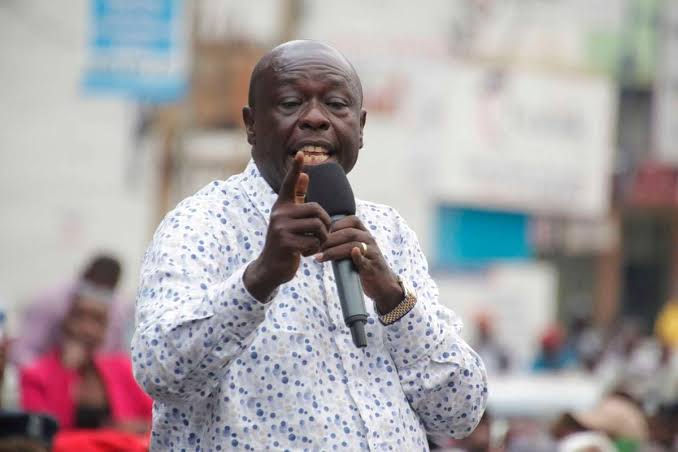By Musa Maridhawa
Kenya’s political landscape is no stranger to theatrics, but former DP Rigathi Gachagua’s recent manoeuvres have crossed into dangerous territory. His blend of tribal rhetoric, inflammatory accusations, and blatant hypocrisy expose a character deserving of close observation before anyone takes him seriously any time soon.
As the 2027 elections beckon, Gachagua’s toxic demagoguery, draped in populist slogans such as “Skiza Wakenya” (Listen to Kenyans), masks an agenda rooted in extreme duplicity. Here’s why Kenyans should approach ousted DP with caution. Gachagua has long positioned himself as a champion of the Mt. Kenya region.
He frames his calls for unity to defend a certain community to which he has superimposed himself as a saviour. What is not clear is what he intends to save that particular community from.
The same Gachagua will one minute label President Ruto as “the most tribal-minded leader Kenya has ever seen” while a few minutes later he will demand that Kisii leaders unite behind Fred Matiang’i as a precondition for his support to a man he seems to have grudging ‘admiration’ of.
How more duplicitous can one be! Meanwhile, Gachagua’s limp narrative of victimhood is as pervasive as it is manipulative.
He claims to be targeted by “state-sponsored violence yet, evidence suggests his allies may be complicit in the very chaos he decries. Little wonder that during DCP’s unveiling, the clashes that ensued were blamed on internal disputes over handouts.
Actually, five of the former DP’s allies were summoned for questioning over the violence, raising questions about his camp’s role in orchestrating unrest.
Gachagua’s populist facade crumbles under scrutiny of his financial dealings. While he claims his DCP party represents “the people,” reports expose a pay-to-play scheme at his Wamunyoro residence, where aspiring politicians are charged Ksh 50,000 for photo opportunities.
This transactional approach to politics contradicts Gachagua’s rhetoric of inclusivity and grassroots empowerment. Critics rightly question whether nomination certificates under his party will not come with even steeper price tags thereby entrenching a culture of the very corruption he pretends to condemn and loath.
Meanwhile, Gachagua dismisses President Ruto’s development record while ignoring his own failure to address systemic issues during his tenure as DP. His demagoguery extends beyond personal ambition for it undermines the very foundations that keep societies away from decay and disruptions.
The caustic utterances attributed to Gachagua will surely scuttle the very country he dreams of leading one day. By repeatedly accusing the judiciary and police of bias, Gachagua erodes public trust in institutions meant to safeguard fairness.
His dismissal of Ruto’s 2022 victory as “deceit” risks delegitimizing electoral processes altogether, time and again priming his supporters to reject unfavourable outcomes in 2027.
Worse, yet, Gachagua’s allies amplify these narratives claiming that, “rigged polls will have serious consequences.” To the former DP, violence is the only political currency he seems to understand.
Such rhetoric suggests that Gachagua’s does not mind sponsoring ethnic slaughter to romp to power. Rigathi Gachagua is not a victim. Far from it! Indeed he is nothing but a reckless provocateur, one who spews tribal rhetoric to manufacture baseless victimhood so as to hog cheap sympathy.
If Kenyans must continue listening to Gachagua, they should first demand that he shuns tribal dog-whistles, embraces transparency and he commits to strengthen key institutions, such as the Judiciary and the Police but not forever condemning them.
Kenyans must not let Gachagua turn the 2027 election into a referendum on tribalism and fear. We must condemn and reject demagogues like Gachagua and embrace leaders who prioritise unity over division and consistency over duplicity.
Looking back, perhaps it is a boon to Kenyans that by exposing his unbridled and poison-laden demagoguery we know better than to touch Gachagua with a ten-metre rod come 2027!
Maridhawa is Kilifi-based ethnographer

